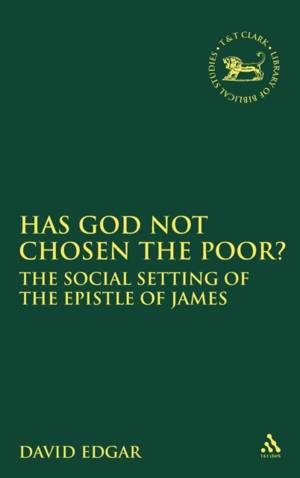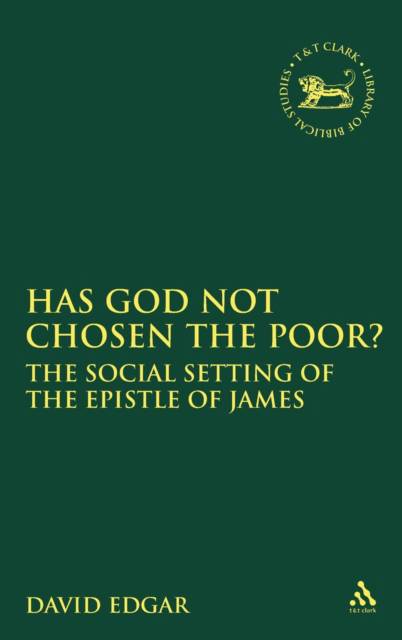
- Retrait gratuit dans votre magasin Club
- 7.000.000 titres dans notre catalogue
- Payer en toute sécurité
- Toujours un magasin près de chez vous
- Retrait gratuit dans votre magasin Club
- 7.000.0000 titres dans notre catalogue
- Payer en toute sécurité
- Toujours un magasin près de chez vous
Description
The significance of the Epistle of James within early Christianity, when not neglected, has been disputed. In recent years the letter, and its author, have received renewed attention, and this contribution to the revival examines the way in which the author and his addressees are depicted within the social world of emerging Christianity. Edgar finds strong points of contact with the sayings of Jesus and with early Christian itinerant proclaimers, who are often seen as having been active in preserving and transmitting these sayings. The Epistle challenges the shaky commitment of its readers to their new allegiance, and, in the light of the coming of God's eschatological ruoe, employs the model of patronage to lay out the choice between loyalty to God and identification with the earthly value system dominated by the rich.
Spécifications
Parties prenantes
- Auteur(s) :
- Editeur:
Contenu
- Nombre de pages :
- 261
- Langue:
- Anglais
- Collection :
Caractéristiques
- EAN:
- 9781841271828
- Date de parution :
- 01-03-01
- Format:
- Livre relié
- Format numérique:
- Genaaid
- Dimensions :
- 156 mm x 234 mm
- Poids :
- 548 g

Les avis
Nous publions uniquement les avis qui respectent les conditions requises. Consultez nos conditions pour les avis.






